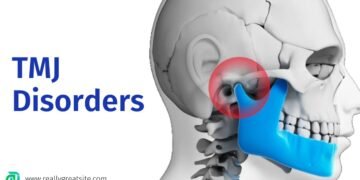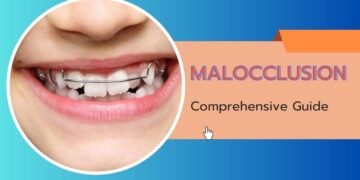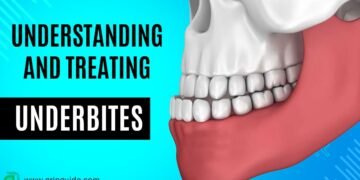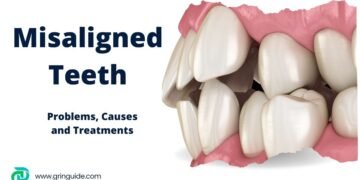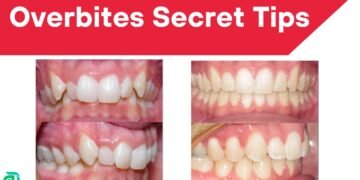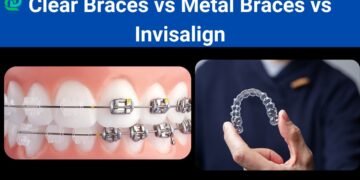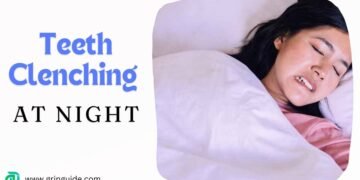Table of Contents
Introduction
Nighttime teeth clenching, also known as nocturnal bruxism, is a common yet often overlooked condition that affects a significant portion of the population. This involuntary habit involves the grinding or clenching of teeth during sleep, which can lead to a variety of dental and health issues if left unaddressed. While many individuals may be unaware that they clench their teeth at night, the effects can be far-reaching and detrimental to their overall well-being.
Bruxism can manifest in several ways, from audible grinding noises to more subtle symptoms such as headaches, jaw pain, and tooth sensitivity. The repetitive nature of clenching teeth at night can cause significant wear and tear on the enamel, leading to increased susceptibility to cavities, fractures, and other dental problems. Additionally, this constant pressure on the jaw muscles and joints can contribute to temporomandibular joint (TMJ) disorders, which can cause chronic pain and discomfort.
Beyond the direct impact on dental health, nighttime teeth clenching can also affect one’s quality of sleep. The disruption caused by bruxism can lead to fragmented sleep patterns, resulting in daytime fatigue, irritability, and decreased cognitive function. Addressing this condition is crucial not only for maintaining optimal dental health but also for preserving overall physical and mental well-being.
Understanding the root causes and potential triggers of nighttime teeth clenching is the first step toward effective management. By raising awareness about this common yet often undiagnosed condition, individuals can seek appropriate treatment and make informed decisions about their health. In the following sections, we will delve deeper into the causes, symptoms, and various treatment options available for managing nighttime teeth clenching.
Recognizing the Symptoms
Understanding the symptoms of clenching teeth at night is crucial for early identification and management. One of the most common symptoms is jaw pain, which might be felt upon waking or persist throughout the day. This discomfort often stems from the continuous pressure exerted on the jaw muscles and joints during sleep. Individuals may also experience persistent headaches, particularly in the temporal regions, which can be directly linked to nighttime teeth clenching.
Another notable sign is worn or damaged teeth. Over time, the excessive force applied during clenching can lead to enamel erosion, making teeth appear flattened or chipped. This wear and tear can significantly affect dental health, increasing the risk of cavities and other oral issues. Additionally, clenching teeth at night can cause increased tooth sensitivity. Individuals might notice heightened sensitivity to hot, cold, or sweet foods and beverages, which can be uncomfortable and disruptive to daily eating habits.
Disruptions in sleep are another symptom associated with nighttime teeth clenching. Frequent awakenings or difficulty in achieving a restful night’s sleep can be indicative of this condition. These disruptions not only affect the individual’s sleep quality but can also be observed by a sleep partner. Partners might report hearing grinding noises or notice restless movements during the night.
It is also essential to consider the emotional and psychological symptoms. Stress and anxiety are often linked to nighttime teeth clenching, and individuals might find themselves more irritable or fatigued due to the compounded effects of poor sleep and physical discomfort. By recognizing these signs, both individuals and healthcare providers can take proactive steps towards diagnosis and management, ensuring better oral health and overall well-being.
Teeth Clenching at Night with Braces
Clenching teeth at night, also known as bruxism, poses significant challenges for individuals undergoing orthodontic treatment with braces. This involuntary habit can exacerbate the discomfort often associated with braces and may lead to a range of complications. The combination of bruxism and braces can increase the risk of damaging the orthodontic appliances, potentially causing brackets to break or wires to bend. Such damage can interrupt the carefully planned alignment process, leading to extended treatment times and additional visits to the orthodontist.
The pressure exerted by clenching teeth at night can also negatively impact the movement of teeth. Orthodontic treatment is designed to apply precise forces to guide teeth into their correct positions. However, the excessive force from bruxism can counteract these forces, resulting in slower progress and potentially less effective outcomes. Furthermore, the added strain on the teeth and jaw muscles can lead to increased pain and discomfort, making the orthodontic experience more challenging for patients.
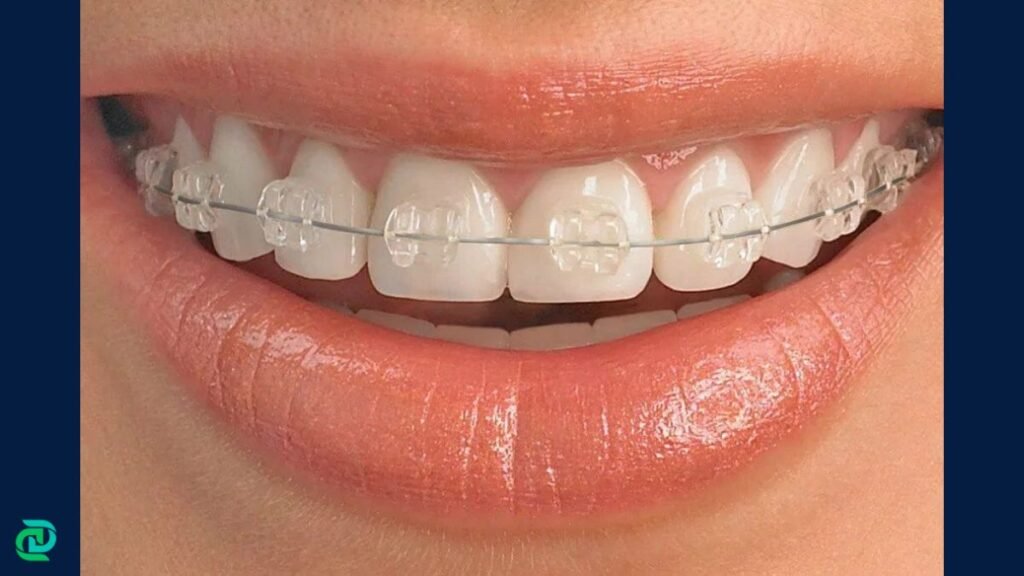
Identifying nighttime teeth clenching can be difficult, as it occurs unconsciously during sleep. However, there are several signs that orthodontic patients and their caregivers can monitor. Common indicators include waking up with sore jaw muscles, headaches, or noticing unusual wear on the teeth. Additionally, if braces frequently become damaged, this could be a sign of nighttime clenching.
Managing bruxism with braces involves a multifaceted approach. Orthodontists may recommend the use of a custom-made mouthguard or night guard to protect the teeth and braces from the excessive forces of clenching. Stress management techniques, such as relaxation exercises and improved sleep hygiene, can also be beneficial in reducing the frequency and intensity of bruxism. Regular follow-ups with the orthodontist are crucial to monitor the condition and make any necessary adjustments to the treatment plan. By addressing nighttime teeth clenching proactively, patients can ensure a smoother and more effective orthodontic journey.
Common Causes of Nighttime Teeth Clenching
Nighttime teeth clenching, medically referred to as bruxism, can be attributed to an array of factors. One of the predominant causes is stress and anxiety. When individuals experience heightened levels of stress or chronic anxiety, the body’s natural response may manifest as clenching or grinding teeth during sleep. This subconscious reaction can result in significant dental wear and other related health issues.
Another contributing factor is sleep disorders. Conditions such as obstructive sleep apnea or periodic limb movement disorder can disrupt sleep patterns, leading to teeth clenching. These disorders often cause micro-arousals throughout the night, during which teeth grinding may occur as a response to the disturbed sleep cycle.
Misaligned teeth, or malocclusion, can also lead to clenching teeth at night. When the teeth do not align properly, the jaw muscles may work overtime to find a comfortable position, resulting in nighttime grinding. Orthodontic issues like an overbite or underbite can exacerbate this condition and require professional intervention.
Lifestyle factors cannot be overlooked either. The consumption of stimulants such as caffeine and alcohol can significantly impact sleep quality and contribute to nighttime teeth clenching. Caffeine, commonly found in coffee, tea, and energy drinks, can increase muscle activity during sleep. Similarly, alcohol, although initially sedative, disrupts sleep architecture and can lead to increased episodes of teeth clenching.
Identifying the root cause of nighttime teeth clenching is crucial for effective management. By understanding whether stress, sleep disorders, dental misalignment, or lifestyle choices are the primary contributors, targeted interventions can be employed. Addressing these underlying factors not only alleviates the symptoms but also promotes overall well-being and dental health.
Managing Teeth Clenching with a Retainer
Wearing a retainer can be an effective strategy for managing nighttime teeth clenching, also known as bruxism. Retainers serve as a protective barrier between the upper and lower teeth, thereby reducing the risk of damage and alleviating pressure on the jaw. By preventing direct contact between the teeth, retainers help to minimize the wear and tear associated with clenching and grinding.
Retainers come in different types, including fixed and removable options. A custom-fitted retainer, made specifically for an individual’s mouth, is often recommended for those who clench their teeth at night. This type of retainer is designed to fit snugly, providing maximum protection and comfort. A dentist or orthodontist will typically take an impression of the teeth to ensure the retainer fits precisely.
Choosing the right type of retainer involves consulting with a dental professional to assess the severity of the clenching and the specific needs of the individual. Soft retainers are usually more comfortable and can be preferable for mild cases, while hard acrylic retainers offer more robustness and durability for severe clenching.
Proper maintenance of a retainer is crucial for its effectiveness and longevity. Retainers should be cleaned regularly to prevent the buildup of bacteria and plaque. Using a soft toothbrush and non-abrasive toothpaste to gently clean the retainer is recommended. Additionally, soaking the retainer in a denture cleaner or a mixture of water and mild soap can help keep it hygienic. It is essential to avoid using hot water, as it can warp the retainer.
Storing the retainer in a protective case when not in use can prevent damage and loss. Regular check-ups with a dental professional are also important to ensure the retainer remains in good condition and continues to fit properly.
Link Between Teeth Clenching and Headaches
Nighttime teeth clenching, also known as nocturnal bruxism, is a common condition that can have a significant impact on one’s overall health. One of the most notable consequences of clenching teeth at night is the development of headaches. The mechanism behind this is relatively straightforward: the excessive force exerted on the jaw muscles during clenching creates tension, which can radiate upwards and manifest as tension headaches or even migraines.
Tension headaches are often described as a constant, dull ache, typically felt on both sides of the head. These headaches can be accompanied by a sensation of tightness or pressure across the forehead or at the back of the head and neck. In contrast, migraines tend to be more intense and may include throbbing pain, often on one side of the head, along with symptoms like nausea, vomiting, and sensitivity to light and sound.
Recognizing whether headaches are linked to nocturnal bruxism requires attention to specific signs. For instance, if headaches are more pronounced in the morning or coincide with jaw pain, stiffness, or clicking sounds, it could indicate that teeth clenching at night is the underlying cause. Additionally, wear and tear on dental surfaces and increased tooth sensitivity might also be present.
Given the potential for nighttime teeth clenching to contribute to headaches, seeking appropriate treatment is crucial. Consulting with a dentist or a healthcare provider for a proper diagnosis is the first step. Treatments may include the use of mouthguards to prevent clenching, stress management techniques to reduce overall tension, and, in some cases, medications to relax jaw muscles. Addressing the root cause of nocturnal bruxism can significantly alleviate headache symptoms and improve overall quality of life.
Effective Strategies to Stop Nighttime Teeth Clenching
Nighttime teeth clenching, medically known as bruxism, can significantly impact oral health and overall well-being. Implementing effective strategies to mitigate this condition is crucial. One of the foremost approaches is stress management. Techniques such as mindfulness meditation, yoga, and deep-breathing exercises can help reduce the stress and anxiety that often trigger clenching teeth at night.
In addition to stress management, incorporating specific jaw exercises into your daily routine can be beneficial. Gentle stretching and massaging of the jaw muscles can alleviate tension and promote relaxation. Exercises that focus on strengthening the jaw, such as controlled opening and closing of the mouth, can help in reducing the frequency and intensity of nighttime teeth clenching.
Avoiding stimulants before bed is another critical strategy. Stimulants like caffeine and nicotine can increase alertness and tension, making it more likely for individuals to clench their teeth while asleep. Limiting consumption of these substances, particularly in the hours leading up to bedtime, can contribute significantly to reducing bruxism episodes.
Using a mouthguard is a practical solution for many individuals dealing with nighttime teeth clenching. Custom-fitted mouthguards, prescribed by dental professionals, can provide a protective barrier between the upper and lower teeth, preventing damage caused by clenching and grinding. While over-the-counter options are available, a custom-fitted mouthguard ensures a better fit and greater comfort.
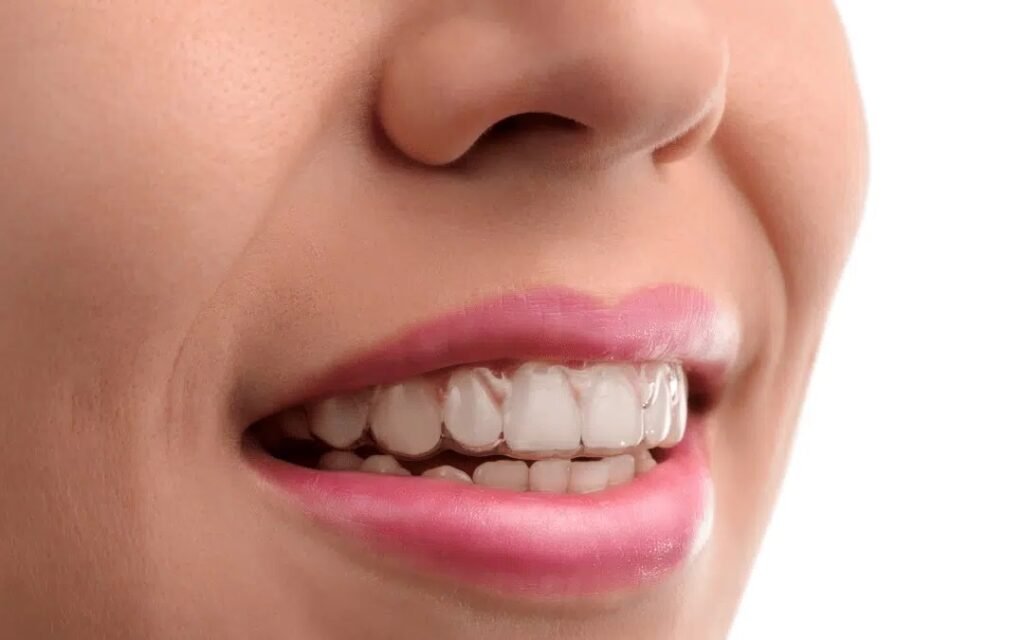
Consistency and patience are paramount when implementing these strategies. It is essential to maintain regular practices of stress management and jaw exercises while adhering to lifestyle adjustments, such as avoiding stimulants. It may take some time to notice significant improvements, but persistence is key to achieving long-term relief from nighttime teeth clenching.
When to Seek Professional Help
Identifying the right time to seek professional help for clenching teeth at night is crucial for preventing long-term damage and addressing underlying health issues. While occasional teeth grinding might not warrant immediate concern, persistent or severe bruxism can lead to significant dental problems and discomfort. Here are key indicators that professional intervention is necessary:
First, if you experience chronic jaw pain or headaches upon waking, it may be a sign of severe nighttime teeth clenching. Additionally, worn or damaged teeth, increased tooth sensitivity, or unexplained tooth fractures are clear indicators that the issue requires professional attention. These symptoms suggest that the pressure exerted during sleep is causing harm to your dental structure.
Second, if you detect any audible grinding noises during the night, either from personal observation or reported by a partner, this is another signal that the situation needs to be evaluated by a professional. Audible grinding is often a sign of severe bruxism, which can lead to more serious complications if left untreated.
Consulting a healthcare professional is recommended when these symptoms persist. Dentists are often the first point of contact for addressing nighttime teeth clenching. They can provide a thorough examination to determine the extent of the damage and may recommend treatments such as custom-made mouthguards or splints to protect your teeth during sleep. These devices are designed to reduce the impact of clenching and grinding, thereby minimizing damage.
In some cases, referral to a specialist such as an orthodontist or a maxillofacial surgeon may be necessary, particularly if the bruxism is linked to bite misalignment or other structural issues. Additionally, if stress or anxiety is identified as a contributing factor, a mental health professional might be involved to offer stress management strategies or therapy.
Overall, seeking timely professional help can mitigate the damaging effects of nighttime teeth clenching, ensuring better dental health and overall well-being.
FAQs
-
How do I stop clenching my teeth at night?
There are several strategies to help reduce or eliminate teeth clenching at night. One effective approach is using a mouth guard, which acts as a barrier between your upper and lower teeth, preventing them from grinding against each other. Additionally, managing stress through relaxation techniques such as meditation, yoga, or deep breathing exercises can help, as stress is a significant contributor to bruxism. Regular dental check-ups are also crucial for monitoring any wear and tear on your teeth.
-
Can bruxism be cured?
While there is no definitive cure for bruxism, it can be managed effectively with the right approaches. Treatment often involves a combination of dental interventions and lifestyle changes. In some cases, addressing underlying issues such as sleep disorders or anxiety can significantly reduce the occurrence of teeth clenching. Consulting with a dental professional is essential to develop a tailored treatment plan that suits your specific needs.
-
How to relax the jaw when sleeping?
Relaxing your jaw muscles before sleep can help minimize teeth clenching. Techniques such as applying a warm compress to the jaw area, performing gentle jaw stretches, and practicing good sleep hygiene can be beneficial. Ensuring that you have a comfortable sleeping environment and avoiding caffeine or alcohol before bedtime can also support better jaw relaxation during sleep.
-
What does jaw clenching look like?
Bruxism, commonly known as teeth clenching or grinding, is a condition that affects many people, often during sleep. This involuntary action can lead to various dental issues, including enamel wear, increased tooth sensitivity, and even jaw pain. Recognizing the signs of bruxism is the first step in addressing the problem. Common symptoms include waking up with a sore jaw, headaches, or noticing flattened or chipped teeth.
